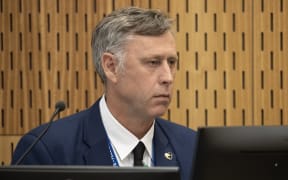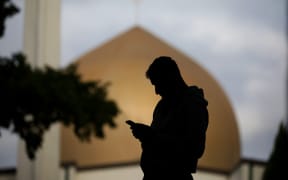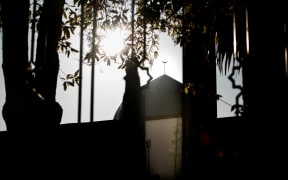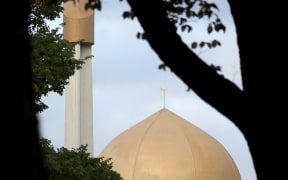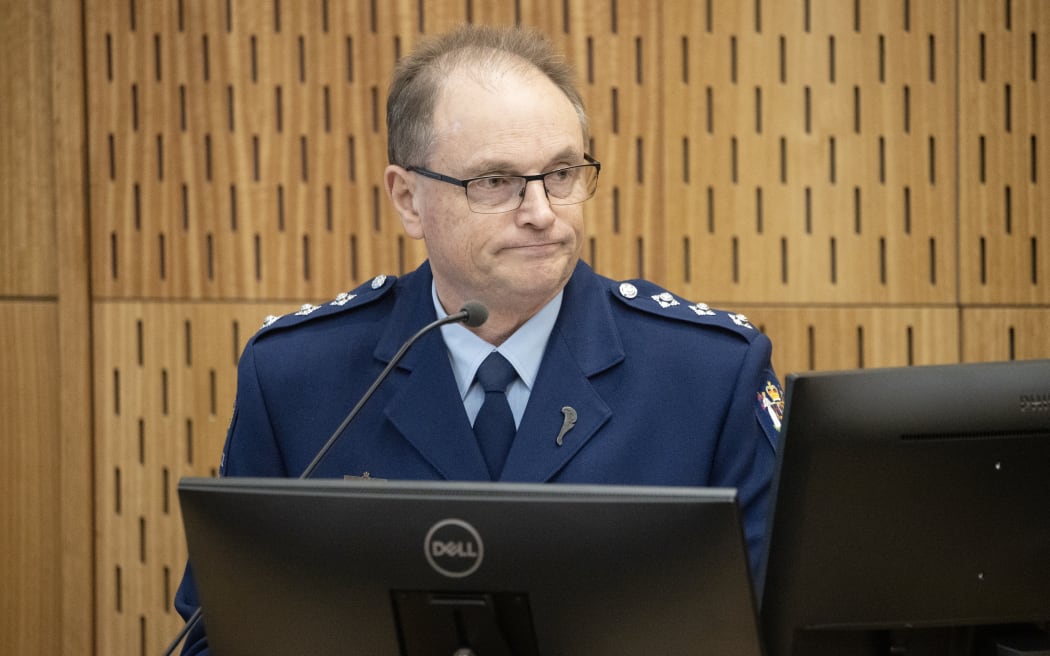
Inspector Ian Harris. Photo: George Heard
A police call-taker did not make a mistake by failing to categorise the first emergency call alerting police to the Christchurch terrorist's manifesto as a top priority, an inquest has heard.
A parliamentary staffer made a 111 call to police within two minutes of receiving the email with the manifesto, after it was forwarded by another staffer in the Prime Minister's Office on 15 March 2019.
The Coroners Court has heard the emergency call was categorised as a "priority 2", meaning it was virtually lost as other calls about the mass shooting at the Al Noor mosque and Linwood Islamic Centre were listed as "priority 1".
Inspector Ian Harris, who was the national operations manager for the police communication centres at the time of the massacre, told the court the parliamentary staffer's call was properly coded as "NATSEC (national security) priority 2".
"A P2 priority is also appropriate in this case given the general nature of the threat towards Christchurch, no specific time of when the threat was due to be carried out, the fact the threat was being relayed second hand through someone who had received an email about it, and that best efforts were being made to try and interpret the meaning and genuineness of the email at the time the phone call was made.
"Our staff are trained to make the priority coding assessment in accordance with our priority coding definitions and using their best assessment of all available information able to be gained during initially the first few minutes of a call."
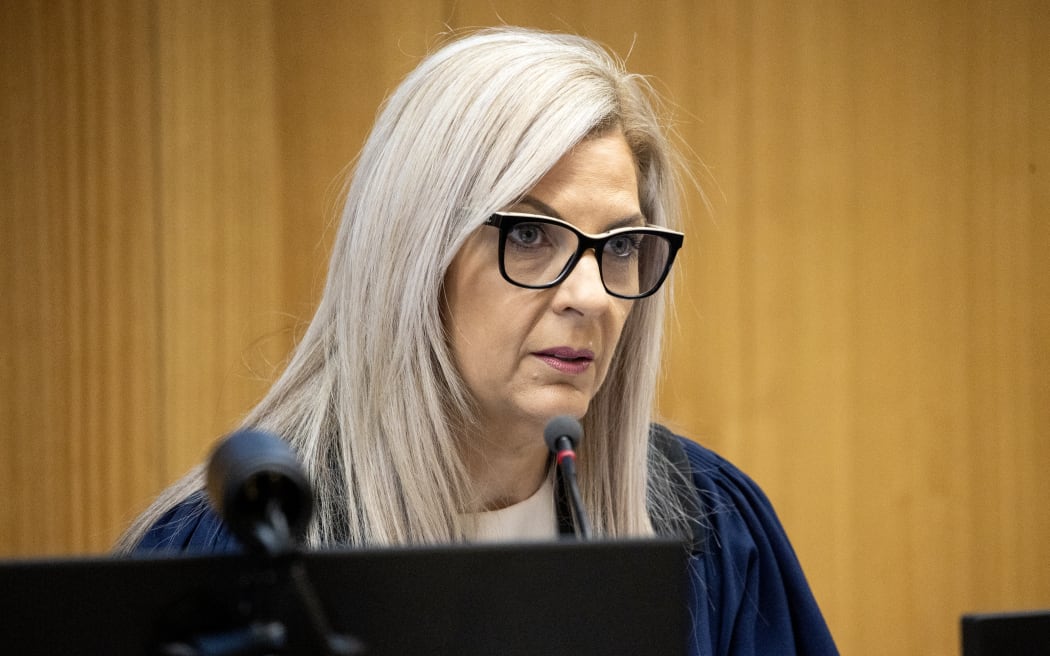
Deputy chief Coroner Brigitte Windley. Photo: Pool / George Heard
Inspector Harris said it was also possible the way the call was presented - and the suggestion by the parliamentary staffer that it could be a hoax - influenced the way the call-taker coded the event.
"I would say that the truly Black Swan nature of this event in New Zealand context possibly influenced the caller in his tendency towards disbelief of the accuracy and immediacy of the actual threat posed."
Under cross-examination by counsel for police Mark Zarifeh, Inspector Harris said some "significant" changes had been made to the way police communication centres worked - and it was partly because of the terrorist attack.
Any NATSEC event was to now be entered as a priority 1 and there had been "significant" training and upskilling about hate crime.
Questioned by David Boldt, counsel assisting the coroner, Inspector Harris confirmed call-takers were aware they were to advise a supervisor in circumstances where they received calls about incidents such as use of firearms, life threatening situations, and incidents that would generate media attention.
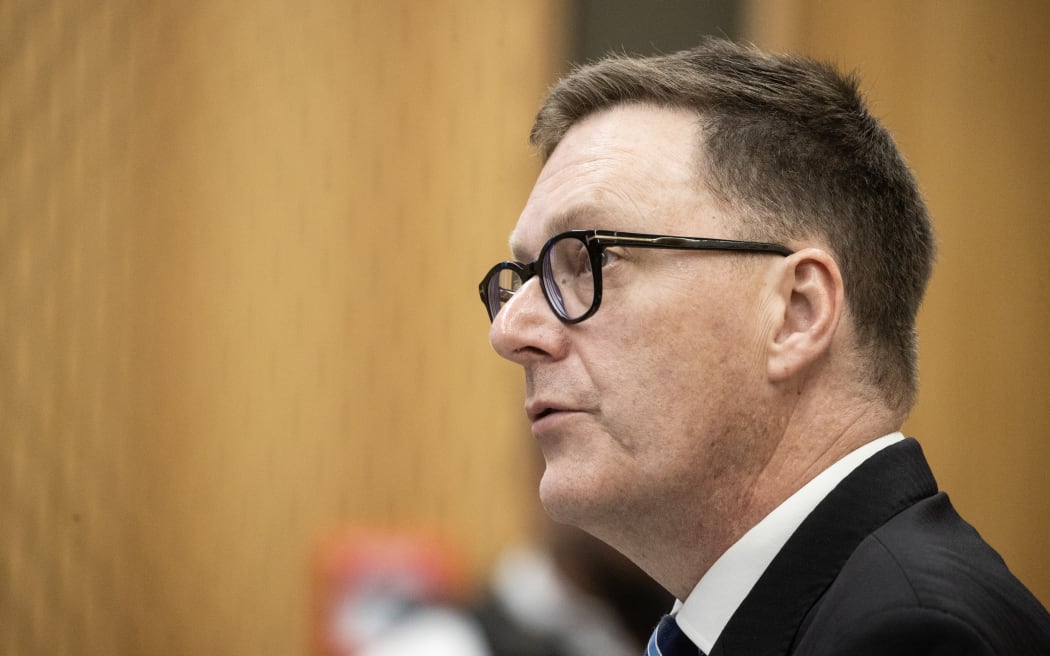
Counsel assisting the coroner David Boldt. Photo: Pool / George Heard
He confirmed the call by the parliamentary staffer should have been escalated to a supervisor as it fit into more than one of those categories.
Despite the event being pushed down the dispatcher's screen as a priority 2 event, Inspector Harris would not agree with Boldt that the call made no impact on the way police responded to the attack on 15 March.
Parliamentary staffer called police within minutes of receiving manifesto
Earlier on Wednesday, the parliamentary worker, whose name is suppressed, gave evidence.
He called police after another staffer forwarded the email titled 'On the attack in New Zealand today' to him for review.
The Prime Minister's Office received the email at 1.33pm and the parliamentary staffer at approximately 1.39pm. He called police at approximately 1.41pm.
While the staffer called 111, he also forwarded the email to the National Command and Coordination Centre, and later to the Southern Communications police team and its team leader.
The parliamentary staffer scanned the manifesto during the call and picked out information including the terrorist's name, age, weapon he was intending to use and location of the attack.
The staffer also told the call taker that he thought the email had come from "just a nutter" and later said the more he read it, the more it appeared to be a "crank".
Under cross examination, the staffer said Parliament received a lot of correspondence from people who were mentally unstable and some of it was escalated to police.
On receiving this email, he said he believed it needed to be further followed up on and was why he reported it to police shortly after receiving it.
"I had no idea at the time it was going to lead to what it sadly led to," he said.
He accepted he appeared calm in the call, but said it was just the way he conducted himself as he would in reporting any matter to police.
Questioned by deputy chief Coroner Brigitte Windley, the staffer said it was not his intention to influence the way police would respond by suggesting the email was not authentic by sharing his opinion that it was a "crank".
The staffer said he did not become less concerned by the email's contents as he continued to read it.
He remembered feeling "uneasy" after the phone call, and more so when news reports of a shooting in Christchurch started to come out.
But he said there was nothing he would have done differently.
"I don't know what more we could have done," he said.
On Tuesday, a video tribute to the 51 victims was played in court, as well as an hour-long audio-visual timeline which provided a "high-level" overview of the events of the day of the attack.
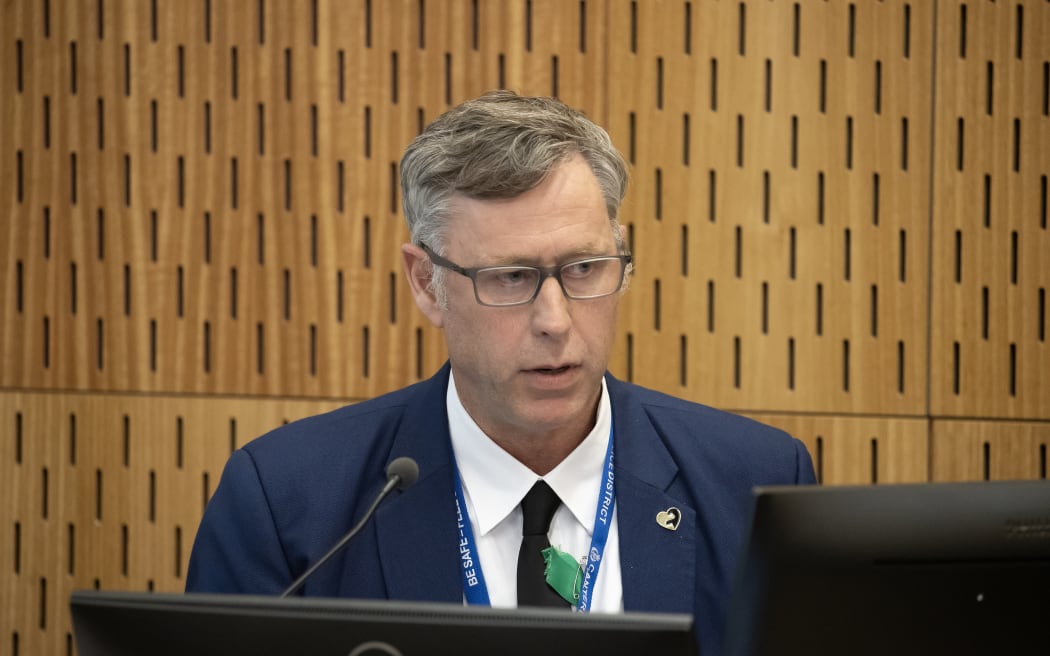
Detective Senior Sergeant Craig Farrant. Photo: Pool / Iain McGregor / The Press
Detective Senior Sergeant Craig Farrant told the court the investigation was the largest ever undertaken by New Zealand Police.
"The 15 March 2019 attack on the Al Noor Mosque and the Linwood Islamic Centre in Christchurch is the single largest terrorist incident and mass homicide that New Zealand has experienced," Farrant said.
"This involved the largest response operation every undertaken by the New Zealand Police. In the space of 19 minutes, 49 people from our community had been murdered, and attempts were made to murder a further 42 people, leaving many with life threatening injuries. One of the injured victims died later that day in hospital and another, a few weeks after."
The inquest will examine the following 10 issues over the next six weeks:
- The events of 15 March 2019 from the commencement of the attack until the terrorist's formal interview by police.
- The response times and entry processes of police and ambulance officers at each mosque.
- The triage and medical response at each mosque.
- The steps that were taken to apprehend the offender.
- The role of, and processes undertaken by, Christchurch Hospital in responding to the attack.
- Co-ordination between emergency services and first responders.
- Whether the terrorist had any direct assistance from any other person on 15 March 2019.
- If raised by immediate family, and to the extent it can be ascertained, the final movements and time of death for each of the deceased.
- The cause of death for each of the victims and whether any deaths could have been avoided.
- Whether Al Noor Mosque emergency exit door in the south-east corner of the main prayer room failed to function during the attack and, if so, why?
The inquest continues.
